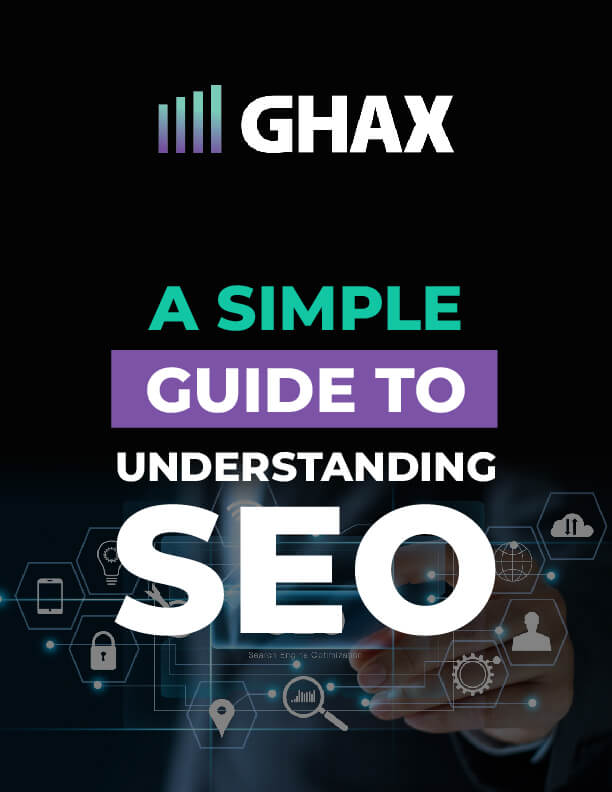The secret to a thriving online presence might be hidden in an unexpected statistic: 68% of all online activities begin with a search engine. That means for most of us, whether we’re seeking answers, services, or products, our journey starts with a simple search. But what about the other side of the coin?
For those who own websites, this statistic underscores the importance of being discovered in those initial search results. This brings us to one crucial discipline: understanding and implementing the SEO principles that get your site noticed. No matter the nature or size of your business, these seven fundamental principles can help you increase your visibility, boost your traffic, and grow your online presence.
1. Understand Your Audience and Their Search Intent
Mastering the basics of SEO starts with knowing your audience. Without a clear understanding of who your audience is and what they’re searching for, it’s hard to meet their needs or appear in their search results.
Search intent is the ‘why’ behind a search query. It’s the goal a user wants to achieve when they type a question or term into a search engine. Generally, search intents can be classified into four categories:
- Informational: The user wants to learn something
- Navigational: The user wants to go to a specific website
- Transactional: The user wants to buy something
- Commercial investigation: The user wants to compare products or services
Understanding search intent helps you tailor your website content to meet the needs of your audience. For instance, if a large portion of your audience has transactional intent, having an easy-to-navigate online store can improve their experience and increase conversions.
2. Importance of Keyword Research
So, you’ve learned about search intent and audience understanding, what’s next? This is where keyword research comes into play. It’s the cornerstone of how SEO works.
Keywords are the terms that users type into search engines. They are the bridge between what people are searching for and the content you provide to fill that need.
Conducting keyword research helps you discover the exact phrases your audience uses in their searches. These insights allow you to optimize your website content, ensuring it aligns with user queries.
But how can you conduct keyword research?
- Start by listing important topics related to your business
- Break these topics down into potential keywords
- Use SEO tools to refine your list based on search volume and competition
- Study your competition to find gaps in their keyword strategy
Remember, keyword research isn’t just about finding high-volume keywords. It’s about finding the right keywords that align with your audience’s intent, your offerings, and your content. Getting this step right sets a solid foundation for your SEO efforts.
3. Quality Content Is Key
When people ask, “What is SEO?”, the answer often revolves around keywords and algorithms. While these are important, they don’t capture the full picture. The heart of SEO lies in delivering high-quality content that resonates with your audience.
Content is more than just filling your website with text that includes your targeted keywords. It’s about providing valuable, relevant, and engaging information that serves the needs of your users. The better your content, the more likely search engines are to rank your pages higher on search results.
Search engines use complex algorithms to evaluate the quality of content. These include metrics such as dwell time (how long a visitor stays on your site) and bounce rate (how quickly they leave). The more engaging your content, the better these metrics, the higher your website ranks.
You should aim to create content that is original, well-structured, and provides real value to your audience. Remember, quality over quantity. It’s better to have fewer high-quality pages than many low-quality ones.
4. Optimize Website Speed and Mobile-Friendliness
SEO services are not only about keywords and content. The technical aspects of your website play a crucial role too. One of the main technical factors that can impact your site’s ranking is speed.
Website speed matters because it directly affects user experience. If your website takes too long to load, users are likely to leave. This increases your bounce rate, which can negatively impact your SEO.
Mobile-friendliness is another essential factor. With the majority of internet users accessing the web through their mobile devices, having a mobile-friendly website is no longer optional. If your website isn’t mobile-friendly, you could be missing out on a significant portion of potential traffic.
5. Secure Your Website (HTTPS)
Making the shift to a secure website can be one of your smartest moves as a business owner. HTTPS, or Hyper Text Transfer Protocol Secure, is an internet communication protocol that protects the integrity and confidentiality of data between the user’s computer and the site.
Search engines and users both value security. They prefer sites that use HTTPS because it ensures a safer browsing experience for users.
This preference means that secure websites are more likely to rank higher in search results. USers who have trust in your security are also more likely to engage and convert.
To shift to HTTPS, you’ll need to obtain an SSL certificate and install it on your server. The process can be technical, so you may want to seek help from an SEO company or a web developer.
6. Use of SEO Tools
The world of SEO can seem complex, but luckily, many tools can simplify the process. SEO tools can provide valuable insights, automate tasks, and help you optimize your website more effectively.
There are tools for every aspect of SEO. Keyword research tools can help you find the right keywords. Analytics tools can give you insights into your website’s performance. Technical SEO tools can help you identify and fix issues that could be hurting your site’s rankings.
Some popular SEO tools include Google Analytics, Google Search Console, and SEMRush. Each tool has its strengths, so you might want to use a combination to cover all aspects of SEO.
7. Keep Track of Your SEO Efforts
SEO is not a one-and-done task. It’s an ongoing process that requires regular monitoring and adjustment. This is where tracking your SEO efforts becomes critical. By keeping an eye on your website’s performance, you can identify what’s working and what needs improvement.
Start by setting up an analytics tool, such as Google Analytics. This tool can provide data about your website’s traffic, user behavior, and other vital statistics. Using this information, you can see which of your pages are performing well and which ones might need a bit more SEO work.
You should also pay attention to your keyword rankings. These rankings show where your website appears in search engine results for specific keywords. If your rankings are improving, it’s a sign your SEO efforts are paying off.
But remember, SEO is a long game. It can take time for your efforts to yield visible results. Don’t be discouraged if you don’t see immediate improvements.
Harnessing SEO Principles for Business Growth
Cracking the code of SEO doesn’t have to be impossible. By understanding and implementing these essential SEO principles, you can significantly boost your online visibility and pave the way for business growth. But remember, while SEO can be learned, it takes significant time, effort, and continuous refinement.
At ghax.io, we’re here to make that journey smoother. As a trusted SEO company, we provide comprehensive SEO services tailored to your specific needs. Ready to take the leap? Book a growth strategy session with us today to see how we can take your business to the next level.




